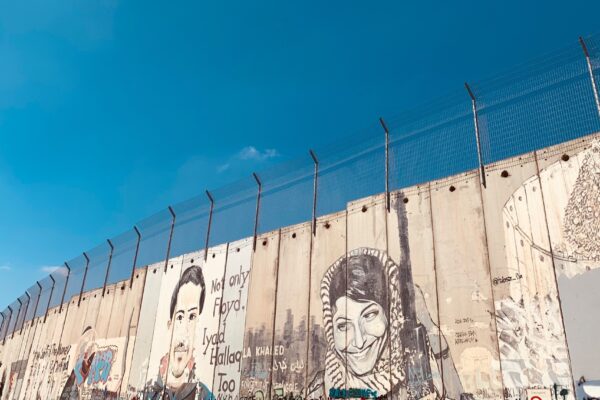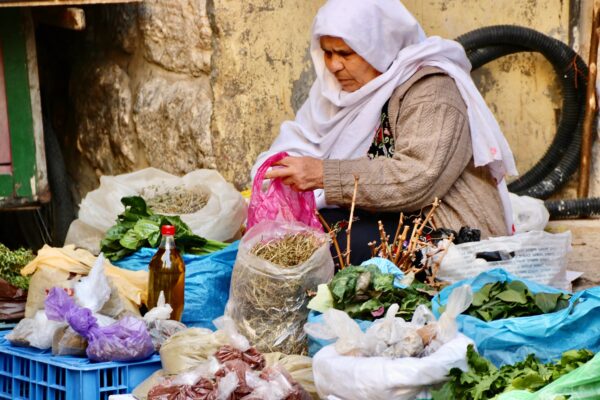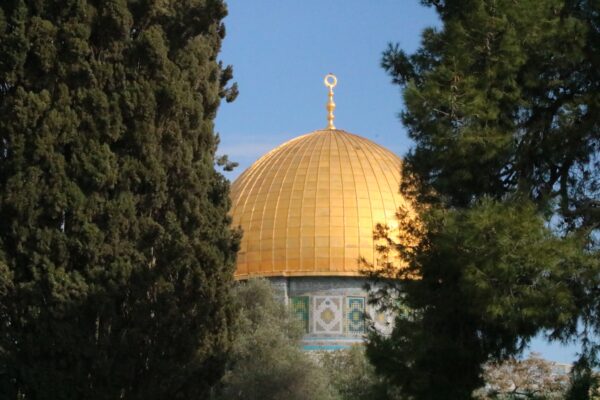Being a fantasy-prone melodramaniac* with an overactive imagination, I dreaded visiting Iraq with my family. I had already visited twice before, each time learning something significant but returning with a “never again” rhythm to my stride. Iraq was much better admired from a distance, I had decided. It was easier to be romantic about the orange dusty planes and flesh-baking heat after the mind conveniently dims the more painful memories. Nostalgia makes us yearn for things we forgot we hated, whether those things are places, foods, or Frasier sitcom episodes. Let the memory of Iraq be sweet, I thought. There’s no need to rehash old resentments.
My parents however, being fantasy-prone melodramaniacs with overactive imaginations, were seized by an incurable bout of nostalgia that couldn’t be sated without another trip to their homeland. I found myself once again being persuaded into something I wholeheartedly didn’t want to take part in. There was nothing I could benefit from a country I resented for: 1. searing my adolescent years with a traumatizing sense of loss and hopelessness, and 2. having no decent chocolate. I had already taken whatever could be benefitted from my previous visits, hadn’t I?
As it turned out, I hadn’t. Wisdom is funny in that it precedes its arrival with the abduction of its false image.
I don’t know how much wiser I’ve gotten now (just yesterday I placed a new tea kettle on an open stovetop without removing the sticker on the bottom…then blamed all companies that foolishly put stickers on the bottoms of tea kettles while I coughed the smoke from my lungs), but I do know that I was wrong. I hadn’t realized how trapped I had been in my monotonous routine; how hermiting* away my life was pushing me further from my goals rather than closer; how isolating myself from the unpleasantness of the world was depriving me of its beauty. In short, I was a doof*.
Oh, it wasn’t fear of a grisly death via shrapnel to the brain that gave me hesitance. Death is more familiar to me than my own grandparents. It’s often discussed pleasantly over tea like one would discuss date harvesting or the Kardashians. Since childhood, I remember hearing it implied in passing like: “if God grants us life tomorrow, we will go,” or “your second cousin was beheaded by the Baathist party.” Things like that.
Incidentally, I did meet (and escape) death in Iraq – several times – but it was mostly while in the backseat of my dad’s Escalade as he barrelled down a lawless highway at breakneck speed. While this tactic might’ve been great at keeping the kidnappers and bandits away back in his day, it only rushed us faster to our good friend Death.
My life flashing before my eyes wasn’t the only thing I saw in that country. I saw flat horizons that stretched for miles, adobe houses barely distinguishable from the dirt around it, dusty children playing soccer with a tin can, glittering domes with thousands of travellers ebbing and flowing around them like waves. I saw two teenage boys sitting in front of me on a bus tell the driver (in voices that haven’t yet deepened to manhood) that they were traveling to Baghdad to join the army to fight against Da’esh. I saw widows of soldiers slap their faces in grief. I saw brightly wrapped toffees being thrown in the air at weddings. I saw white veils and black shrouds. I saw both life and death; pain and joy. But most of all, I saw beauty. That was never absent, even in the dreary moments. There was beauty in this place, this land no one wants to think about. There was a paradise in the midst of this hell. If one looks beyond the strife and breaks that outer shell that the world seems to be fixated on, they’ll find the preserved humanity there. And that, in its rawest, most basic form, is beautiful.
The major and minor lessons I’ve learnt since my visit are too numerous to recount here, but they did change me. I’m no longer the “leave that unpleasant thing over there and let us study it from a distance” type. The fallacy in that logic is that the “unpleasant thing” is only so from a distance. When you embrace it – not just observe, but become one with it; live it – you will most likely cease to view it as unpleasant. Such is humanity. To get a better understanding of the world and its inhabitants, we need to stop pushing it away and become part of it. There is much beauty to be found in the strife. Boundless humanity can be discovered in the places you might have cringed to look at before.
I didn’t want to hear stories about abject destitution or incurable diseases, but when I did, when I looked into the faces of those who struggled with them and we wept and prayed together, I felt freed. Somehow a chain that had shackled my spirit fell away on its own, and I wasn’t aware of its presence until it was gone. Our hearts were meant to connect to others, that’s why we have the ability to feel compassion. If we deny the spirit that fundamental need, we become icy, aloof, and dead inside. The risk of connecting is having your heartstrings tugged and sometimes even broken, but even that is preferable to meeting Death on a highway and realizing you’ve been dead for years.
*Not actually a word, but it totes** should be
**Should never be used again ever





